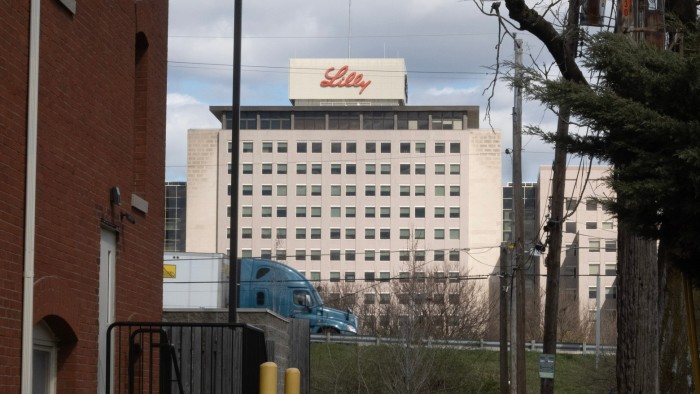Unlock the Editor’s Digest for free
Roula Khalaf, Editor of the FT, selects her favourite stories in this weekly newsletter.
The EU’s medicines regulator has declined to approve Eli Lilly’s new Alzheimer’s drug, deciding the risks of serious and potentially fatal side effects outweigh the benefits of slowing the progression of the disease.
A European Medicines Agency committee on Friday recommended that marketing authorisation for donanemab, known by the brand name Kisunla, be refused. The drug has been approved and is sold in the US.
The EMA committee said that brain swelling and bleeding occurred more often in patients taking the drug than in those on a placebo. It said 1.6 per cent of people treated with Kisunla experienced serious side effects, known as amyloid‑related imaging abnormalities, which resulted in three deaths.
The regulator’s rejection follows its decision in July last year not to approve lecanemab, known by the brand name Leqembi, an Alzheimer’s drug developed by US biotech Biogen and Japanese drugmaker Eisai. It is also approved and sold in the US.
But in November, the committee recommended that lecanemab be used in a limited population of patients with early Alzheimer’s who had only one or no copies of the ApoE4 gene. These characteristics make them less likely to experience the brain-swelling side effects.
The EMA committee said Eli Lilly proposed restricting donanemab’s approval to people who do not have this gene. But it said the benefits still did not outweigh the risks for this group.
Both Alzheimer’s drugs were breakthroughs because they were the first to slow the progression of a debilitating disease suffered by millions of people.
But some researchers have debated whether they slow the rate of cognitive decline enough to make a meaningful difference to patients.
In the UK, the medicines regulator approved donanemab for people in the early stage of the disease who have only one or no copies of the ApoE4 gene. But Nice, the UK healthcare spending watchdog, ruled that it did not provide value for money because it slows disease progression by only four to seven months.
Ilya Yuffa, executive vice-president and president of Lilly International, said the company was confident about the safety and effectiveness of the drug, and hoped it could continue discussions with the EMA through the re-examination process.
“Europeans living with early symptomatic Alzheimer’s disease and their loved ones urgently need additional treatment options,” he said.
Read the full article here

